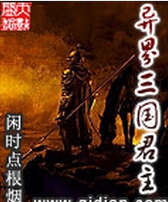君主论-the prince(英文版)-第8章
按键盘上方向键 ← 或 → 可快速上下翻页,按键盘上的 Enter 键可回到本书目录页,按键盘上方向键 ↑ 可回到本页顶部!
————未阅读完?加入书签已便下次继续阅读!
h the people are supported; they also hold militaryexercises in repute; and moreover have many ordinances to uphold them。Therefore; a prince who has a strong city; and had not made himselfodious; will not be attacked; or if any one should attack he will onlybe driven off with disgrace; again; because that affairs of this worldare so changeable; it is almost impossible to keep an army a whole yearin the field without being interfered with。 And whoever should reply: Ifthe people have property outside the city; and see it burnt; they willnot remain patient; and the long siege and self…interest will make themforget their prince; to this I answer that a powerful and courageousprince will overe all such difficulties by giving at one time hope tohis subjects that the evil will not be for long; at another time fear ofthe cruelty of the enemy; then preserving himself adroitly from thosesubjects who seem to him to be too bold。Further; the enemy would naturally on his arrival at once burn and ruinthe country at the time when the spirits of the people are still hot andready for the defence; and; therefore; so much the less ought the princeto hesitate; because after a time; when spirits have cooled; the damageis already done; the ills are incurred; and there is no longer anyremedy; and therefore they are so much the more ready to unite withtheir prince; he appearing to be under obligations to them now thattheir houses have been burnt and their possessions ruined in hisdefence。 For it is the nature of men to be bound by the benefits theyconfer as much as by those they receive。 Therefore; if everything iswell considered; it wilt not be difficult for a wise prince to keep theminds of his citizens steadfast from first to last; when he does notfail to support and defend them。CHAPTER XICONCERNING ECCLESIASTICAL PRINCIPALITIESIT ONLY remains now to speak of ecclesiastical principalities; touchingwhich all difficulties are prior to getting possession; because they areacquired either by capacity or good fortune; and they can be heldwithout either; for they are sustained by the ordinances of religion;which are so all…powerful; and of such a character that theprincipalities may be held no matter how their princes behave and live。These princes alone have states and do not defend them; they havesubjects and do not rule them; and the states; although unguarded; arenot taken from them; and the subjects; although not ruled; do not care;and they have neither the desire nor the ability to alienate themselves。Such principalities only are secure and happy。 But being upheld bypowers; to which the human mind cannot reach; I shall speak no more ofthem; because; being exalted and maintained by God; it would be the actof a presumptuous and rash man to discuss them。Nevertheless; if any one should ask of me how es it that the Churchhas attained such greatness in temporal power; seeing that fromAlexander backwards the Italian potentates (not only those who have beencalled potentates; but every baron and lord; though the smallest) havevalued the temporal power very slightly …… yet now a king of Francetrembles before it; and it has been able to drive him from Italy; and toruin the Veians …… although this may be very manifest; it does notappear to me superfluous to recall it in some measure to memory。Before Charles; King of France; passed into Italy; this country wasunder the dominion of the Pope; the Veians; the King of Naples; theDuke of Milan; and the Florentines。 These potentates had two principalanxieties: the one; that no foreigner should enter Italy under arms; theother; that none of themselves should seize more territory。 Those aboutwhom there was the most anxiety were the Pope and the Veians。 Torestrain the Veians the union of all the others was necessary; as itwas for the defence of Ferrara; and to keep down the Pope they made useof the barons of Rome; who; being divided into two factions; Orsini andColonna; had always a pretext for disorder; and; standing with arms intheir hands under the eyes of the Pontiff; kept the pontificate weak andpowerless。 And although there might arise sometimes a courageous pope;such as Sixtus 'IV'; yet neither fortune nor wisdom could rid him ofthese annoyances。 And the short life of a pope is also a cause ofweakness; for in the ten years; which is the average life of a pope; hecan with difficulty lower one of the factions; and if; so to speak; onepope should almost destroy the Colonna; another would arise hostile tothe Orsini; who would support their opponents; and yet would not havetime to ruin the Orsini。 This was the reason why the temporal powers ofthe pope were little esteemed in Italy。Alexander VI arose afterwards; who of all the pontiffs that have everbeen showed how a pope with both money and arms was able to prevail; andthrough the instrumentality of the Duke Valentino; and by reason of theentry of the French; he brought about all those things which I havediscussed above in the actions of the duke。 And although his intentionwas not to aggrandize the Church; but the duke; nevertheless; what hedid contributed to the greatness of the Church; which; after his deathand the ruin of the duke; became the heir to all his labours。Pope Julius came afterwards and found the Church strong; possessing allthe Romagna; the barons of Rome reduced to impotence; and; through thechastisements Alexander; the factions wiped out; he also found the wayopen to accumulate money in a manner such as had never been practisedbefore Alexander's time。 Such things Julius not only followed; butimproved upon; and he intended to gain Bologna; to ruin the Veians;and to drive the French out of Italy。 All of these enterprises prosperedwith him; and so much the more to his credit; inasmuch as he dideverything to strengthen the Church and not any private person。 He keptalso the Orsini and Colonna factions within the bounds in which he foundthem; and although there was among them some mind to make disturbance;nevertheless he held two things firm: the one; the greatness of thechurch; with which he terrified them; and the other; not allowing themto have their own cardinals; who caused the disorders among them。 Forwhenever these factions have their cardinals they do not remain quietfor long; because cardinals foster the factions in Rome and out of it;and the barons are pelled to support them; and thus from theambitions of prelates arise disorders and tumults among the barons。 Forthese reasons his Holiness Pope Leo found the pontificate most powerful;and it is to be hoped that; if others made it great in arms; he willmake it still greater and more venerated by his goodness and infiniteother virtues。CHAPTER XIIHOW MANY KINDS OF SOLDIERY THERE ARE; AND CONCERNING MERCENARIESHAVING discoursed particularly on the characteristics of suchprincipalities as in the beginning I proposed to discuss; and havingconsidered in some degree the causes of their being good or bad; andhaving shown the methods by which many have sought to acquire them andto hold them; it now remains for me to discuss generally the means ofoffence and defence which belong to each of them。We have seen above how necessary it is for a prince to have hisfoundations well laid; otherwise it follows of necessity he will go toruin。 The chief foundations of all states; new as well as old orposite; are good laws and good arms; and as there cannot be good lawswhere the state is not well armed; it follows that where they are wellarmed they have good laws。 I shall leave the laws out of the discussionand shall speak of the arms。I say; therefore; that the arms with which a prince defends his stateare either his own; or they are mercenaries; auxiliaries; or mixed。Mercenaries and auxiliaries are useless and dangerous; and if one holdshis state based on these arms; he will stand neither firm nor safe; forthey are disunited; ambitious and without discipline; unfaithful;valiant before friends; cowardly before enemies; they have neither thefear of God nor fidelity to men; and destruction is deferred only solong as the attack is; for in peace one is robbed by them; and in war bythe enemy。 The fact is; they have no other attraction or reason forkeeping the field than a trifle of stipend; which is not sufficient tomake them willing to die for you。 They are ready enough to be yoursoldiers whilst you do not make war; but if war es they takethemselves off or run from the foe; which I should have little troubleto prove; for the ruin of Italy has been caused by nothing else than byresting all her hopes for many years on mercenaries; and although theyformerly made some display and appeared valiant amongst themselves; yetwhen the foreigners came they showed what they were。 Thus it was thatCharles; King of France; was allowed to seize Italy with chalk in hand;'1' and he who told us that our sins were the cause of it told thetruth; but they were not the sins he imagined; but those which I haverelated。 And as they were the sins of princes; it is the princes whohave also suffered the penalty。I wish to demonstrate further the infelicity of these arms。 Themercenary captains are either capable men or they are not; if they are;you cannot trust them; because they always aspire to their owngreatness; either by oppressing you; who are their master; or others




